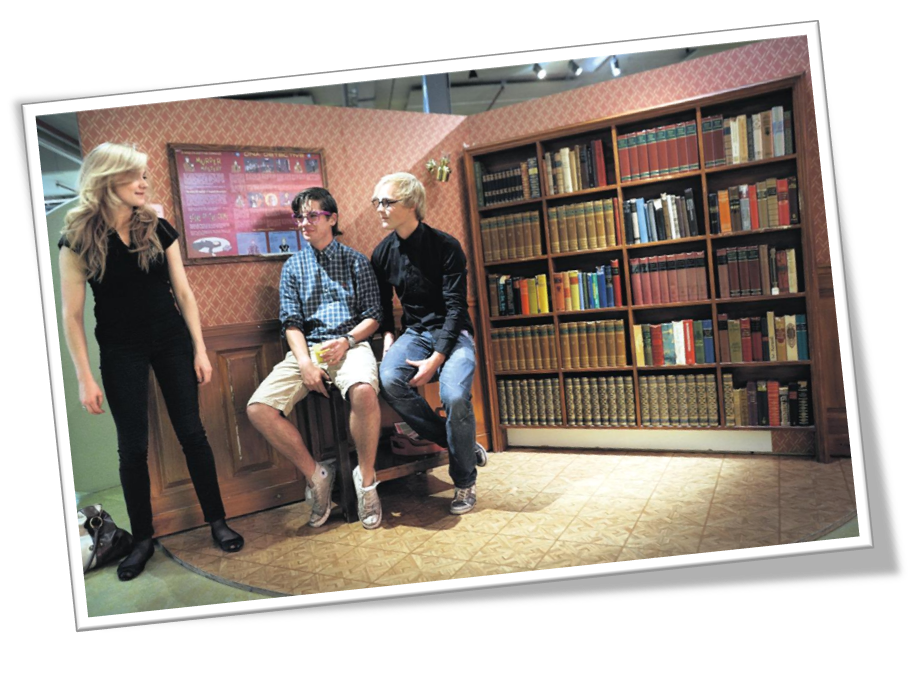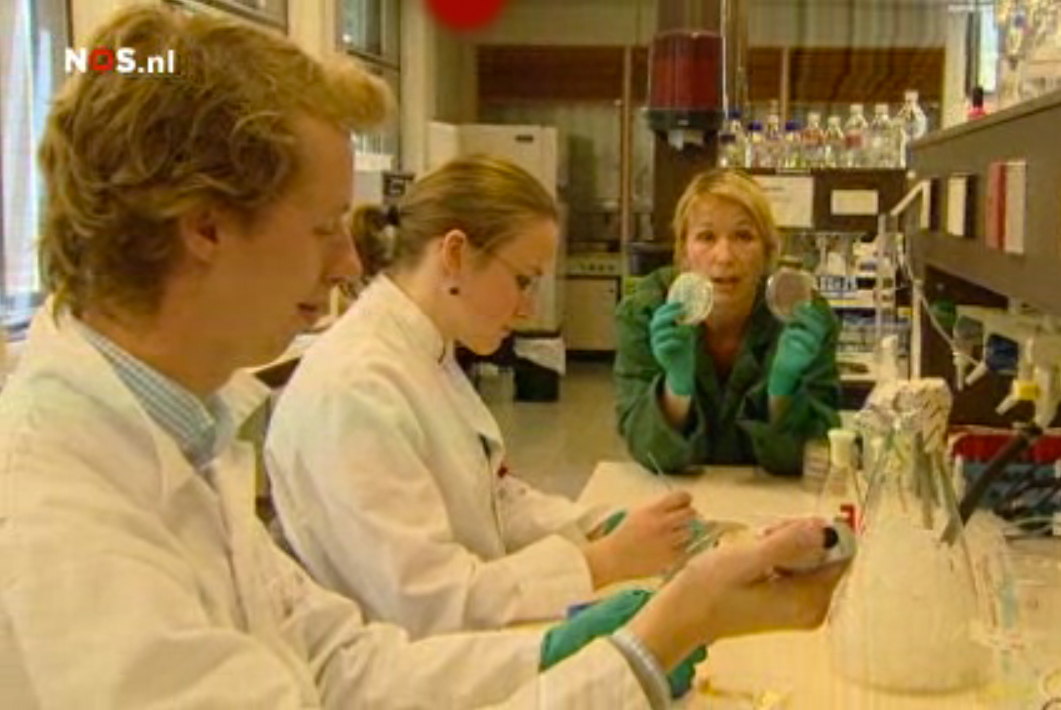Team:TU Delft/Safety
From 2010.igem.org
| Line 1: | Line 1: | ||
| + | __NOTOC__ | ||
| + | {{:Team:TU_Delft/header}} | ||
<html> | <html> | ||
| - | < | + | <div id="menu_wrap"> |
| - | < | + | </html> |
| - | < | + | {{:Team:TU_Delft/menu|contentpage={{{contentpage|home}}} }} |
| - | + | <html> | |
| - | < | + | </div> |
| - | + | <div id="content_wrap"> | |
| - | + | <div id="content_table"> | |
| - | < | + | <div id="top_row"> </div> |
| - | < | + | <div class="main_row"> |
| - | + | <div id="main_td"> | |
| - | + | ||
| - | + | <style> | |
| - | + | #panel_mask { | |
| - | + | width: 925px; | |
| - | + | overflow:hidden; | |
| - | + | margin:0 auto; | |
| - | + | } | |
| - | + | .page_panel { | |
| - | + | float:left; | |
| - | + | width: 925px; | |
| - | + | padding-right:10px; | |
| - | + | } | |
| - | < | + | </style> |
| - | < | + | |
| - | </ | + | <div id="panel_mask"> |
| - | </ | + | <!-- to load pages that are not in the main sliding pages --> |
| - | < | + | <div id="subpage_panel" style="display:hidden;"></div> |
| - | + | <div id="panel"> | |
| - | + | <!-- CONTENT STARTS HERE /--> | |
| - | </ | + | |
| - | </ | + | <div id="page_home" class="page_panel"> |
| + | </html>{{:Team:TU_Delft/pages/home}}<html> | ||
| + | </div> | ||
| + | |||
| + | <div id="page_blog" class="page_panel"> | ||
| + | </html>{{:Team:TU_Delft/pages/blog}}<html> | ||
| + | </div> | ||
| + | |||
| + | <div id="page_safety" class="page_panel"> | ||
| + | </html>{{:Team:TU_Delft/pages/safety}}<html> | ||
| + | </div> | ||
| + | |||
| + | <div id="page_background" class="page_panel"> | ||
| + | </html>{{:Team:TU_Delft/pages/background}}<html> | ||
| + | </div> | ||
| + | |||
| + | <div id="page_project" class="page_panel"> | ||
| + | </html>{{:Team:TU_Delft/pages/project}}<html> | ||
| + | </div> | ||
| + | |||
| + | <div id="page_education" class="page_panel"> | ||
| + | </html>{{:Team:TU_Delft/pages/education}}<html> | ||
| + | </div> | ||
| + | |||
| + | <div id="page_sponsors" class="page_panel"> | ||
| + | </html>{{:Team:TU_Delft/pages/sponsors}}<html> | ||
| + | </div> | ||
| + | |||
| + | <div id="page_press" class="page_panel"> | ||
| + | </html>{{:Team:TU_Delft/pages/press}}<html> | ||
| + | </div> | ||
| + | <!-- CONTENT ENDS HERE /--> | ||
| + | </div> | ||
| + | </div> | ||
| + | |||
| + | </div> | ||
| + | </div> | ||
| + | <div id="bottom_row"> </div> | ||
| + | </div> | ||
| + | </div> | ||
| + | <div id="footer_wrap"></html> | ||
| + | {{:Team:TU_Delft/footer}} | ||
| + | <html></div> | ||
| + | </div> | ||
| + | |||
| + | <!-- CODE SECTION --> | ||
| + | |||
| + | <script type="text/javascript"> | ||
| + | |||
| + | function isUndefined(x) { var u; return x === u; } | ||
| + | |||
| + | var activePage = "</html>{{{contentpage|home}}}<html>"; | ||
| + | var pageCache = {}; | ||
| + | |||
| + | function setupTabButton(page) { | ||
| + | var btn= $(".menu_button_" + page); | ||
| + | btn.click(function(event) { | ||
| + | $.address.value(page); | ||
| + | return false; | ||
| + | }); | ||
| + | |||
| + | // setup hovering | ||
| + | var btnCssClassSelected = "menu_button_" + page + "_sel"; | ||
| + | btn.hover(function() { | ||
| + | if (page != activePage) | ||
| + | btn.addClass(btnCssClassSelected); | ||
| + | }, function() { | ||
| + | if (page != activePage) | ||
| + | btn.removeClass(btnCssClassSelected); | ||
| + | }); | ||
| + | |||
| + | btn.addClass("button_pointer"); | ||
| + | if (page == activePage) | ||
| + | btn.addClass("menu_button_"+activePage+"_sel"); | ||
| + | } | ||
| + | |||
| + | // rewrite links to load with AJAX within the frame | ||
| + | function rewriteLinks(elem) { | ||
| + | // TODO: replace full links too (with "http://..")? | ||
| + | $("a[href^=/Team:TU_Delft/]", elem).each(function() | ||
| + | { | ||
| + | this.href = this.href.replace("Team:TU_Delft/", wgPageName+ "#/"); | ||
| + | }); | ||
| + | } | ||
| + | |||
| + | var pages = [ "home", "blog", "competition", "background", "project", "press", "education", "sponsors" ]; | ||
| + | |||
| + | function updatePageMaskHeight() | ||
| + | { | ||
| + | var maxHeight = 0; | ||
| + | for(var i=0; i<pages.length;i++) { | ||
| + | var page=pages[i]; | ||
| + | |||
| + | var pgHeight = $("#page_"+page).height(); | ||
| + | if(pgHeight > maxHeight) maxHeight = pgHeight; | ||
| + | } | ||
| + | |||
| + | // $('#panel_mask').height(maxHeight); | ||
| + | // $('.page_panel').height(maxHeight); | ||
| + | $("#panel_mask").height(4000); | ||
| + | } | ||
| + | |||
| + | // this runs when page is loaded | ||
| + | $(function() { | ||
| + | for(var i=0; i<pages.length;i++) { | ||
| + | var page=pages[i]; | ||
| + | setupTabButton(page); | ||
| + | |||
| + | if(wgUserName != null) { | ||
| + | var editurl = wgServer+"/Team:TU_Delft/pages/"+page+"?action=edit"; | ||
| + | $("#page_" + page + ">*:first").before($("<a href=\""+editurl+ "\">Edit " + page + "</a>")); | ||
| + | } | ||
| + | } | ||
| + | $(".page_panel").each(function() { rewriteLinks(this); }); | ||
| + | updatePageMaskHeight(); | ||
| + | |||
| + | //Set the sub-panel width according to the #mask width (width of #mask and sub-panel must be same) | ||
| + | $('#panel .page_panel').width($('#panel_mask').width()); | ||
| + | |||
| + | //Calculate the total width - sum of all sub-panels width | ||
| + | //Width is generated according to the width of #mask * total of sub-panels | ||
| + | $('#panel').width(parseInt($('#panel_mask').width() * $('#panel div').length)); | ||
| + | |||
| + | // instead of button click handler, all actions pass through the address bar so history works too | ||
| + | $.address.change(function(event) { | ||
| + | var page = event.path.substring(1); | ||
| + | if(page=='') page = activePage; | ||
| + | |||
| + | $(".menu_button_" + activePage).removeClass("menu_button_" + activePage + "_sel"); | ||
| + | activePage = page; | ||
| + | |||
| + | if($.inArray(page, pages) < 0) { | ||
| + | // hide tab content, and load new page | ||
| + | var url = wgServer+"/Team:TU_Delft/"+page+"?action=render"; | ||
| + | |||
| + | $("#panel").fadeOut(200); | ||
| + | |||
| + | $.get(url, function(data) { | ||
| + | $("#subpage_panel").html(data).fadeIn(200); | ||
| + | rewriteLinks($("#subpage_panel")); | ||
| + | }); | ||
| + | } else { | ||
| + | $("#subpage_panel").fadeOut(200, function() { | ||
| + | $("#panel").fadeIn(200); | ||
| + | }); | ||
| + | |||
| + | // remove old page if any, show tab content | ||
| + | $(".menu_button_" + activePage).addClass("menu_button_" + activePage + "_sel"); | ||
| + | |||
| + | //Get the height of the sub-panel | ||
| + | var panelheight = $("#page_" + page).height(); | ||
| + | |||
| + | //Scroll to the correct panel, the panel id is grabbed from the href attribute of the anchor | ||
| + | $('#panel_mask').scrollTo("#page_" + page, 400); | ||
| + | |||
| + | //Resize the height | ||
| + | // $('#panel_mask').animate({ 'height': panelheight }, { duration: 50 }); | ||
| + | } | ||
| + | }); | ||
| + | |||
| + | }); | ||
| + | |||
| + | </script> | ||
| + | |||
</html> | </html> | ||
Revision as of 13:50, 16 July 2010
Our Project
This year the TU Delft team will take a more worldly approach by making an attempt on improving the environment by creating biobricks that will facilitate hydrocarbon degradation in aqueous environments. See our project description or follow us on our blog.
TU Delft iGEM Team 2010
We've got our team together! 9 undergraduate students of the Delft Technical University have cleared their schedules until (at least) September in order to work on iGEM. Most of us have backgrounds in Life Sciences and Biotechnology, but we also have a Bioinformatician on our side. Besides Synthetic Biology we also share a passion for playing music. Want to get to know us? Have a look at our team page
Media attention
The iGEM TU Delft team is getting more and more popular!
2010-10-09: Eva & Nadine in the Dutch national newspaper 'Volkskrant' Read here (dutch)
2010-06-17: A short video was recorded about our team and synthetic biology by Nanopodium, a platform for exchanging thoughts, ideas, opinions and best practices on nanotechnology. The video is coming soon on youtube, to read more on Nanopodium itself, click here
2010-06-16: iGEM TU Delft on Dutch national TV (NOS news)! Watch here in Dutch and here with English subtitles.
2010-06-16: Dutch national radio. Listen here, or go to the NOS news item.
2010-05-27: The TU Delta, a weekly magazine of the Delft Technical University, published an article about our team. You can find the article here
Oil Sands Initiative
Our project is sponsored by a grant from Oil Sands Initiative. We are grateful to the following sponsors:







Calendar
|
|
|
|
|
|
|
|
| ||||||||||||||||||||||||||||||||||||||||||||||||||||||||||||||||||||||||||||||||||||||||||||||||||||||||||||||||||||||||||||||||||||||||||||||||||||||||||||||||||||||||||||||||||||||||||||||||||||||||||||||||||||||||||||||||||||||||||||||||||||||||||||||||||||||||||||||||||||||||||||||||||||||||||||||||||||||||||||||||||||||||||||||||||||||||||||||||||||||||||||||||||||||||||||||||||||||||||||||||||||||||||||||||||||||||||
Today's post
|
|
Background
Dissolved oil molecules in (waste) water are a serious threat to our ecosystem. One liter of oil pollutes 1,000,000 liters of drinking water. Chemicals are usually used to deal with this problem, however they often contribute to the problem instead of the solution. The iGEM team of this year builds on this global problem and seeks solutions from nature. Some organisms possess genetic properties that enable them to process oil in salty environments. The team will develop biobricks containing these attributes and implement them into E.coli. In this way we can contribute to the development of new bioremediation technologies by creating a bacterium that can purify water contaminated with oil.
Project Description
This year's TU Delft team will be working on the biological conversion of hydrocarbons in aqueous environments, e.g. biological degradation of oil particulates in oil sands tailing waters. The project addresses one of the more considerable challenges in this branch of industry. Addressing the issue through a biological means will require an interdisciplinary approach. The broad range of scientific fields to which we have been exposed throughout our studies will provide the knowledge and experience to formulate an efficient solution for this issue. Besides competing in iGEM, the team also wants to contribute to future research into oil utilization and create new possibilities for sustainable developments in the fossil fuel industry.
The members of the TU Delft team carry a broad range of multidisciplinary assets, but it should be noted that there is a large focus on wet lab work, due to the large number of students from Life Science and Technology. This study is collaboration of two top universities in the Netherlands, the Leiden University (molecular genetics and medicine) and the Technical University of Delft ((bio-)chemical and process engineering), combining fundamental research and applied sciences.
The basis of the 2010 TU Delft iGEM team's project is the generation of a biological chassis for the conversion of hydrocarbons. The conversion system will be implemented and characterized using the well-studied cellular environment of Escherichia coli, the workhorse for genetic and metabolic engineering. To tackle the important aspects faced when using biological systems for oil utilization, we are focusing on the following features:
- Conversion of hydrocarbons
The aerobic alkane conversion pathways of medium and long chain (<C36) alkanes from Gordonia sp. TF6 and Geobacillus thermodenitrificans will be the basis of our parts. These pathways will be implemented using the BioBrick principle and characterized in detail with respect to single enzyme activities and affinity. Using these measurements the efficiency of different enzymes can easily be compared.
- Hydrocarbon tolerance
Hydrocarbons are known to damage the cell membrane and some essential cell proteins. It was found that organisms which are naturally hydrocarbon tolerant produce chaperons and other proteins, which maintain the cellular activity. We will implement this type of hydrocarbon by generating the respective BioBricks.
- Hydrocarbon solubility
An engineering challenge faced in oil bio-conversions is the low solubility of hydrophobic molecules in water. In order to overcome this mass‐transfer limitation we will clone two genes encoding for proteins with emulsifying properties. It is expected that these proteins will increase the solubility of hydrocarbons, which can be then converted more efficiently into potentially valuable products. Additionally, these emulsifiers are promising reagents for oil extraction from sands making the process cheaper and more sustainable.
- Halotolerance
High salt concentrations, as can be found in tailing waters and other aqueous environments contaminated with oil, are toxic to many microorganisms. Our aim is to create a BioBrick which will facilitate cell growth at increased salt concentrations.
- Genetic regulation
In order to have efficient cell growth, it is important to develop a system that activates gene expression at the optimal moment in time. An alkane sensing mechanism will be coupled to the 'in-house' catabolic repression system (crp) generating energy efficient cell growth under glucose conditions as well as produce enzymes for hydrocarbon degradation when needed.
- Genome‐scale modeling
Modeling approaches are used to explore the possibilities of valuable product formation from hydrocarbons. The model will be based on the MetaCyc pathway database, which contains pathway information of many sequenced organisms, covering a broad range of products such as biofuels, bioplastics and other fine chemicals.
The tasks of the team are roughly be divided into two groups. One group will deal mainly with the aspects related to the modeling and design of the synthetic system. A second group of students will mainly carry out the wet lab work.
Also the ethical and safety issues posed by synthetic biology will be considered. The synthesis of a DNA strand representing a set of genes arbitrarily chosen by the designer, and its insertion in a living cell will, in general, provide the host cell, with new emerging properties that were not present in the original organisms. This poses several challenges in terms of safety and ethics that need to be addressed within the project.
We also presented our project in more detail for a number of faculty members, you can find this presentation here.
All registered BioBricks will be published here:
<groupparts>iGEM010 TU_Delft</groupparts>
Planning
The project can be divided into three phases:
The team members get to know each other, get a working knowledge of each other’s topic and start generating ideas.
- Design phase
The students define the biological design which they want to carry out, together with the project specifications.
- Production phase
The (wet-lab) realization of the system and the evaluation of its performance.
During the brainstorming phase, the involvement of the students will be part-time. There are weekly meeting to exchange ideas and discuss proposals. For the remaining 6 months covered by the actual project (May-October), the involvement of the team is full time.
Press
For more information about our project, feel free to contact us!
TU Delft iGEM Team
Phone: +31 15 278 1625
Email: info@igemtudelft.nl
Address
KLUYVERLABORATORIUM VOOR BIOTECHNOLOGIE
Julianalaan 67
2628 BC Delft
THE NETHERLANDS
Press Contact
Nadine Bongaerts - nadine@igemtudelft.nl +31 (0) 6 22 87 92 83
Sponsor Contact
Pieter van Boheemen - pieter@igemtudelft.nl +31 (0) 6 14 15 32 98
Media Coverage
- Green Solution for Oil Spills - TU Delta - 2010-05-27
- TU heeft groene oplossing - NOS Headlines Radio 3FM - 2010-06-16
 "
"




